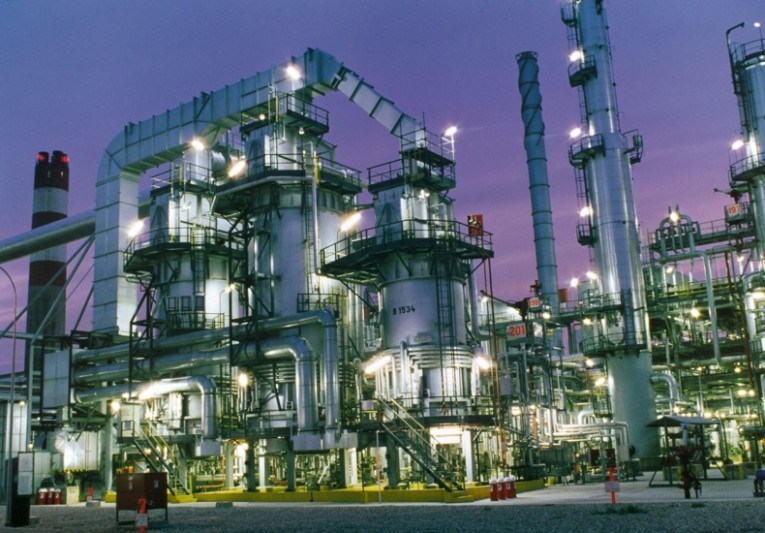
DESPITE guzzling billions in running costs for many years, the four refineries being run by the Nigerian National Petroleum Corporation remain in a sorry state. Claims of turnaround maintenance and rehabilitation funded by taxpayers’ money have not helped. Rather, the fortunes of the refineries have consistently worsened. This criminal waste of resources on the refineries must stop.
Today, more than 60 years after the country started producing and exporting crude oil and gas, the government-owned refineries — located in Port Harcourt, Kaduna and Warri — are sitting idle. Before they were shut down last year, the refineries were performing abysmally due to years of neglect, mismanagement and pillage, leaving the country almost wholly dependent on imported petroleum products. “No white product (petrol and kerosene) was produced in July 2020 and apparently for the past 12 consecutive months. The lack of production is due to ongoing rehabilitation work at the refineries,” the NNPC said in its latest report.
Certainly, there will not be an end to the so-called rehabilitation work. Vice-President Yemi Osinbajo recently brought home the message that the Federal Government had no business running the refineries. “If the refinery is left in the hands of the government, it will continue to experience the same problem it is experiencing now. I do not think that it is the business of the government to run the refinery. It should be the business of the private sector, which is why we are trying to focus on assisting the private sector to develop modular refineries,” he said.
Osinbajo has said it all. While there are countries such as Saudi Arabia and Russia whose governments have effectively managed their refineries, successive governments in Nigeria have failed woefully. Niger State Governor, Sani Bello, lamented, “Kaduna refinery alone can give people jobs, and people will earn their living from it. Now if you go to Kaduna refinery, it is like a city of its own; I am not talking about activities but all those investments over time we have irresponsibly allowed them to die…It is a shame that an oil-producing country will have to import fuel.”
Consequently, stakeholders have been calling for the privatisation of the refineries for years in order to revive them and ramp up domestic refining of crude oil. If this had been done 20 years ago, it would have encouraged private investors to build more refineries in the country.
Thirteen years ago, the government of Olusegun Obasanjo sold a 51 percent stake in the Port Harcourt and Kaduna refineries to Bluestar Oil Services Limited, a consortium comprising Dangote Group, Zenon Oil and Transnational Corporation of Nigeria and the Rivers State Government. But the sale was cancelled by his successor, the late President Umaru Yar’Adua.
In 2012, the National Refineries Special Task Force set up by the Goodluck Jonathan administration to advise it on how best to achieve national self-sufficiency in petroleum products within a strong commercial framework confirmed that the refineries had not been efficiently, safely operated or maintained for more than 15 years. “They have not operated as performance-oriented businesses and are plagued with severe plant maintenance and integrity issues, as well as irregular crude supply and products evacuation,” it added.
The NRSTF said changes in the ownership structure and business model of the refineries were necessary to turn them around. It recommended that the Federal Government should relinquish control of the operation and management of the refineries by divesting a majority of its 100 percent equity to competent, resourceful and experienced refining private partners. That is simply the way to go.
The recommendation was not implemented, but the then Minister of Petroleum Resources, Diezani Alison-Madueke, and the Bureau of Public Enterprises had announced in November and December 2013 respectively that the refineries would be sold. But the Presidency said in January 2014 that the government would not sell the refineries, following stiff opposition, especially from the two major oil unions in the country.
Eight years after the NRSTF recommendation, the state of the refineries has become worse. The refineries are mere cost centres, causing huge losses to the country. They made a total loss of N406.62 billion in 2017 and 2018, according to their latest audited financial statements. Curiously, the Kaduna Refinery and Petrochemical Company Limited did not generate any revenue in 2018, but incurred a total cost of N64.68 billion, comprising N24.69 billion direct cost and N39.99 billion administrative expenses. There are many people in the NNPC doing little or nothing and collecting so much money.
Buhari is damaging the economy heavily by blindly holding on to the refineries. The first four years of his regime ended without the planned rehabilitation of the refineries coming to fruition. In April, the NNPC said it would no longer be involved in the management of the plants after their rehabilitation. The corporation’s Group Managing Director, Mele Kyari, said upon completion of the rehabilitation, the services of a company would be procured to manage the plants on an operations and maintenance bases. According to him, the ultimate plan is to get private partners to invest in the refineries and run them using the Nigeria LNG model where the shareholders would be free to decide the fate of the refineries. Shell holds a 25.6 percent share in the LNG, NNPC 49 percent, Total 15 percent and ENI 10.4 percent. It was reported that the LNG remitted over $18 billion to the Federal Government as dividends from Nigerian investment between 2004 and 2020.
Excellent template. The Federal Government should relinquish its grip on the refineries. It was a famous scientist, Albert Einstein, who defined insanity as “doing the same thing over and over again and expecting different results.” It is time to try a change of tactic by privatising the refineries now.
END

Be the first to comment